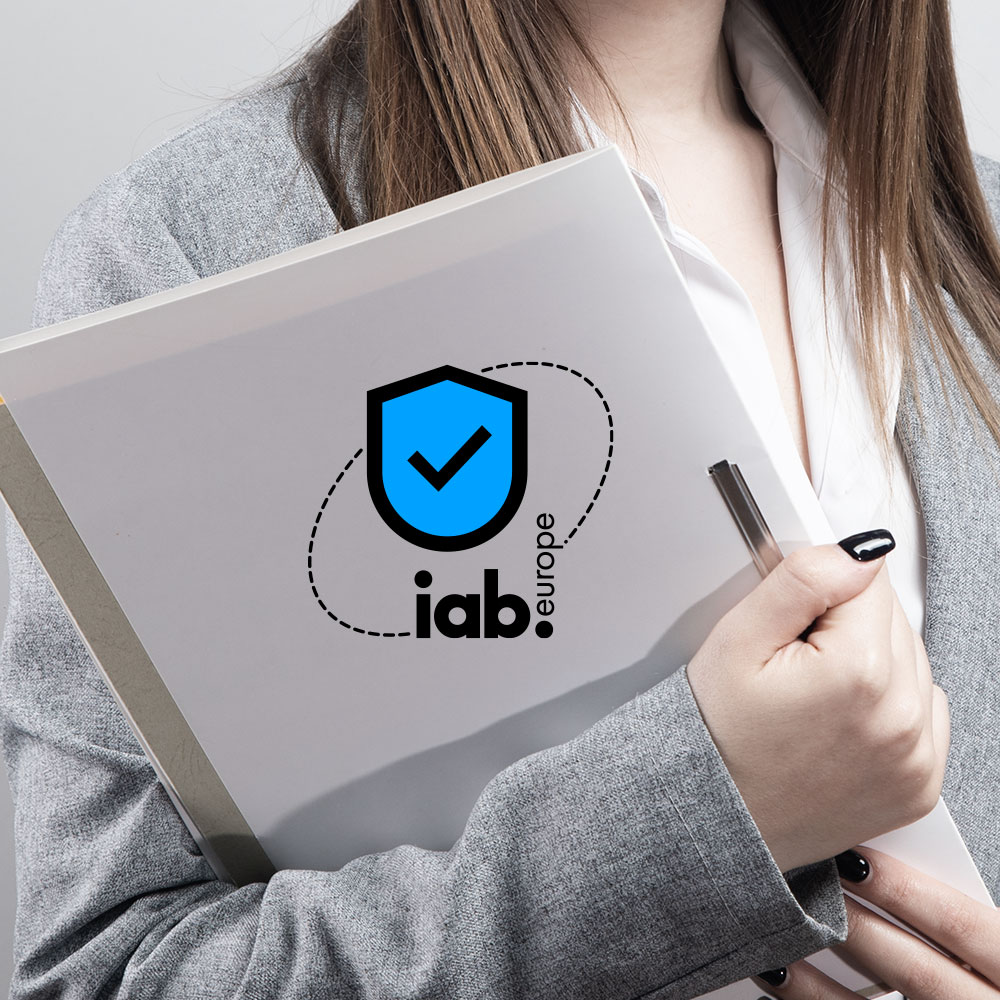As businesses from Asian countries enter European markets, they’re tapping into vast opportunities, marking a significant expansion in global trade. In 2021, Asia’s contribution to global goods exports nearly matched Europe’s, showcasing the burgeoning potential for Asian companies in European territories.
However, these ventures introduce complex challenges, particularly with navigating Europe’s strict regulatory landscape for data protection and user privacy, shaped by the General Data Protection Regulation (GDPR), ePrivacy Directive, and consent requirements for businesses that are third-party customers of dominant platforms like Google’s. These legal frameworks call for a savvy adaptation of marketing tools and strategies to enable compliance as well as successful market penetration.
This article provides a roadmap for Asian businesses targeting EU/UK markets, focusing on best practices for adapting marketing strategies and tools to meet Europe’s specific privacy compliance requirements. Understanding and navigating these regulations is crucial for Asian companies to secure a foothold for their businesses, grow revenue and market share, and build lasting relationships with European consumers.
The importance of the GDPR, ePrivacy, and Google consent requirements
For Asian businesses exploring European markets, recognizing the critical role of GDPR, ePrivacy, and Google’s consent requirements is a cornerstone of successful strategies. Based on the GDPR, ePrivacy Directive, and Google’s specific consent mandates resulting from compliance requirements established by the Digital Markets Act (DMA), European regulatory frameworks establish a rigorous user privacy and data handling standard, impacting every facet of digital marketing.
GDPR compliance and Google Analytics
The GDPR, a benchmark in data protection regulation, often requires explicit user consent to process personal data. This necessity influences your business’s digital footprint strategy, from customer engagement to marketing outreach. Tools like Google Consent Mode integrated with a Google-certified Consent Management Platform (CMP) have become essential for a number of operations, including advertising in the EU. Fortunately, these tools help enable privacy compliance and harness the full potential of Google Analytics.
The ePrivacy Directive, complementing the GDPR
Dubbed the “cookie law”, the ePrivacy Directive governs the use of cookies and similar tracking technologies. It requires that users be fully informed and consent is obtained before data collection starts, setting the stage for more transparent use of data and respect for user privacy. Employing solutions like Google Ads server-side tracking and Google Tag Manager can facilitate adherence to these rules, ensuring more responsible data handling.
Adapting marketing to Google’s consent requirements
Google’s consent requirements for third parties are designed to align advertising and analytics operations with Europe’s stringent privacy regulations. This involves adopting practices like retargeting without cookies, which respects user preferences while maintaining marketing effectiveness. The requirements dictate using a CMP and integrating with tools like Google Consent Mode to signal consent information, enabling businesses to manage user consent effectively across Google’s ecosystem.
The advantages of Google marketing tools
Google’s suite of marketing tools — including Google Analytics, Google Ads, and Google Tag Manager — enables companies to get the data they need and grow their businesses while achieving streamlined compliance with data privacy requirements. Google has made its requirements clear, providing a list of Google-certified CMPs that integrate with Google Consent Mode and the TCF v2.2. This ecosystem helps companies gain privacy compliance and peace of mind while continuing with marketing campaigns in Europe.
Leveraging a consent management platform for streamlined privacy compliance
Consent Management Platforms (CMPs) have become essential for businesses targeting European digital markets, taking on many of the complexities of GDPR and ePrivacy compliance requirements. Usercentrics Web CMP and Usercentrics App CMP provide a centralized solution for obtaining and managing user consent, helping to ensure that businesses can efficiently comply with regulatory demands while building user trust through transparency and choice.
Key benefits of CMPs
- Centralized consent dashboard: Facilitates easy choice, management, and documentation of user consents, crucial for privacy compliance, in case of an audit or data subject access request, or maintaining access to Google platforms for advertising and other services.
- Seamless integration: Harmonizes with your marketing tech stack, helping ensure that consent preferences are consistently applied across all digital interactions, and access to user data is protected and controlled.
- Managed consent updates: Enables users to change or withdraw their consent preference at any time, and enables immediate adjustment to data collection and processing accordingly to maintain privacy compliance and user trust.
- Automated legal and regulatory updates: Saves time and resources by keeping regulatory and data processing service information up to date, providing peace of mind and helping to ensure continued privacy compliance.
- Transparency and trust: Enhances user confidence by clearly communicating how user data is used and providing consent choices that control data collection based on them, promoting a transparent and trustworthy relationship.
CMPs serve as the backbone for managing user consent, which affects the functions of your marketing stack and strategies, helping businesses easily navigate Europe’s complex regulatory landscape.
Key CMP implementation steps
- Choose the right CMP: Opt for a CMP recognized for its robust compliance capabilities, capable of addressing the nuances of the GDPR and the ePrivacy Directive, with strong language support and extensive coverage for information about processing operations.
- Customize consent notices and options: Design consent notices to be clear and user-friendly, offering straightforward options for users to grant or withhold consent at a granular level.
- Documentation of consent: Keep an accurate record of consent to maintain accountability, enable updates, and facilitate compliance checks.
- Regular updates to consent management practices: Use robust analytics to enable key insights into user interactions and optimize to boost consent rates.
For Asian enterprises, adapting to these regulations means shifting how personal data is collected, processed, and protected. Understanding and implementing these standards is crucial to building a trustworthy and legally compliant European presence.
Some Asian countries have implemented comprehensive data privacy regulations, like China’s Personal Information Protection Law (PIPL), South Korea’s Personal Information Protection Act (PIPA), and India’s Digital Personal Data Protection Act (DPDP Act). China’s and India’s regulations, particularly, took some influence from the GDPR, so many companies already operating in Asian markets will have sophisticated familiarity with modern data privacy regulations, and will only need to do limited work to adapt practices to European regulations and audiences.
Adapting to European markets
For Asian businesses venturing into Europe, the journey encompasses more than meeting regulatory benchmarks. establish a genuine rapport with European consumers through great user experience. The optimal approach emphasizes the following:
- Cultural integration: Collaboration with local experts and consultants can be invaluable, providing deep insights that ensure your marketing resonates. In a number of cases, having a local representative and/or Data Protection Officer is also a legal requirement.
- Localized marketing: Beyond translation, adapting your marketing to local preferences involves a nuanced understanding of European consumption patterns, communication preferences, and buying patterns. Tailoring your campaigns to reflect local events or partnering with regional influencers can infuse your brand with authenticity and relevance. We also recommend investing in preference management initiatives to gain critical zero-party data directly from your customer base.
- Continuous engagement through feedback: Creating channels for ongoing dialogue with your European audience is vital. This continuous feedback loop garnered through surveys, social interactions, and other forms of direct communication, allows for the iterative refinement of your marketing strategies, ensuring they remain engaging. Familiarity with the strategies of local competitors can also provide valuable insights.
Tailoring your marketing stack for Europe
Adapting your digital toolkit to the regulations and preferences of European audiences requires strategic foresight.
Platform assessment
Evaluate your current platforms against European data privacy standards, user demographics, and regulatory compliance needs. This assessment helps ensure your tools align with GDPR and ePrivacy requirements while resonating with the European market.
Selecting European-centric platforms
Embrace platforms like Google Marketing Platform, Facebook Ads Manager, and LinkedIn Advertising, with comprehensive targeting capabilities that enable streamlined adherence to European privacy compliance standards.
Privacy-first digital strategy
Prioritize platforms, services, and marketing strategies that champion data privacy and center user experience and rights, offering features like data anonymization and secure data transfer, to uphold the stringent data protection laws prevalent in Europe.
Empowering engagement through consent and preference management
In Europe’s privacy-centric landscape, leveraging a consent management platform (CMP) and preference management tools is crucial for Asian businesses aiming to thrive. These platforms offer a sophisticated solution to navigate the complexities of securing, managing, and documenting user consent in compliance with GDPR, ePrivacy Directive, and Google’s consent requirements. By embedding these systems into your digital ecosystem, you can elevate user trust, ensure privacy protection, and streamline compliance efforts, setting a solid foundation for marketing success and revenue growth.
Core CMP advantages and strategic implementation
Deploying a CMP enables unified consent management and offers centralized oversight of user consents and preferences. This helps ensure that each marketing move is underpinned by explicit user agreement and accompanied by the highest quality user data. This adherence to privacy standards aligns with regulatory expectations, elevates your brand’s integrity, and helps deliver a great user experience.
Offering clear, manageable preference options delivers transparency. It builds trust, empowering users to control their data interactions, reinforcing your brand’s commitment to privacy, and fostering consumer relationships based on respect and trust.
Pioneering privacy-centric marketing in Europe
For Asian businesses targeting European audiences, embracing privacy-first marketing practices is essential. This strategy relies on leveraging zero-party and first-party data, promoting enhanced data security, and more precise ad personalization with consent. This respect for privacy aligns with the stringent regulatory environment in Europe and enables sustained engagement and relevance with your audience. Enabling timely fulfillment of data subject access requests (DSAR) your commitment to privacy while complying with GDPR and other regulatory requirements.
Best practices for privacy-compliant marketing
- Zero and first-party data utilization: Distinguish between zero-party data vs first party data to inform your marketing strategies, especially as third-party cookies become further deprecated. Emphasize direct consumer interactions and preferences and consented data for personalized experiences without compromising privacy.
- Server-side tagging: Implement server-side tagging to bolster data privacy. This method reduces data exposure by processing data on the server side, giving companies greater control over third-party access to user data and enhancing compliance with European privacy standards.
- Contextual and demographic targeting: Shift towards contextual advertising and broad demographic targeting. This strategy enables your marketing efforts to remain engaging and compliant, sidestepping the pitfalls of intrusive personal data use.
- Integration of privacy-forward tools: Incorporate tools and platforms designed with privacy in mind, like a consent management platform, and Google services that integrate with Google Consent Mode. Ensure these tools integrate smoothly with your content management systems, boosting operational efficiency and compliance.
Establishing a privacy-compliant digital presence in Europe
Crafting a digital presence in Europe demands careful consideration of marketing channels and tools, prioritizing privacy and compliance at every turn.
- Select privacy-focused tools and channels: Choose marketing tools with robust consent management features that streamline privacy operations in selected marketing channels. This selection is pivotal in building consumer trust and ensuring privacy compliance.
- Enhanced privacy-focused bidding: Enhance your ad strategies by adopting server-side tracking for privacy-centric targeting. This method ensures efficient ad performance with minimal data exposure, optimizing ad relevance and user privacy simultaneously.
- Develop a privacy-compliant marketing stack: Utilize platforms like Google AdSense, Ad Manager, and AdMob, which work with your CMP to meet GDPR and ePrivacy standards, thereby amplifying your marketing reach without compromising on privacy compliance.
- Personalization with care: Use a consent management platform (CMP) and preference management tools to personalize marketing efforts respectfully, capitalizing on zero-party and first-party data.
- Optimize through integration and feedback: Ensure seamless integration with content management systems, dig into analytics and reporting, and employ continuous feedback loops for strategy refinement to keep your marketing efforts effective and privacy-compliant.
Companies worldwide are now familiar with data privacy regulations, and most are experienced with privacy compliance to some degree. It is unlikely the Asian companies wanting to grow in European markets will be starting from scratch in adopting compliance strategies with the GDPR, ePrivacy Directive, and various other frameworks and corporate requirements, like those from Google regarding user consent.
The key is in balancing data privacy with great user experience and providing attractive products and services that meet or exceed competitive offerings. This will require close integration of marketing, legal, and compliance efforts, data, IT security, and other teams. Smart companies will focus on building user trust and brand presence in EU markets.
Business success and ongoing privacy compliance will also require the right tools and systems to enable compliance with EU regulations and corporate privacy requirements, ideally, those that integrate fully into the marketing stack and with third-party platforms to help ensure seamless privacy compliance and control over valuable user data.
Google now requires publishers to use a Google-certified CMP like Usercentrics CMP integrated with Google Consent Mode and the IAB’s TCF v2.2. With more data privacy laws being passed, like the Digital Markets Act, and corporate-driven data privacy requirements from companies like Google — as a result, companies wanting to do business in Europe need to stay educated and remain agile to evolve as the data privacy landscape does.
The mobile industry has come under increasing scrutiny for data privacy as well, requiring publishers and developers to take user privacy seriously in apps and games. Adopting a CMP and integrating AdMob advertising, for example, enables a lucrative monetization strategy that helps enable privacy compliance without sacrificing performance or user experience.
Asian companies can find significant success in competitive European markets and may have a competitive advantage in streamlining technical operations and marketing strategies by building privacy into their plans from launch, instead of having to retrofit them after becoming established. These companies can also build more precise and privacy-compliant marketing operations on zero- and first-party data, rather than evolving away from third-party data reliance.
Many Asian companies already have global footprints and provide world-leading products and services to huge and savvy audiences, so their expansion is potentially greatly beneficial to European consumers. These companies need to ensure they adapt strategies and operations to meet the EU’s regulations’ current and future privacy requirements when engaging, selling to, analyzing, and working to retain users.
Is your company looking to expand into European digital markets? We can answer all your questions and help you achieve GDPR and ePrivacy compliance. Usercentrics CMP is also Google-certified.



